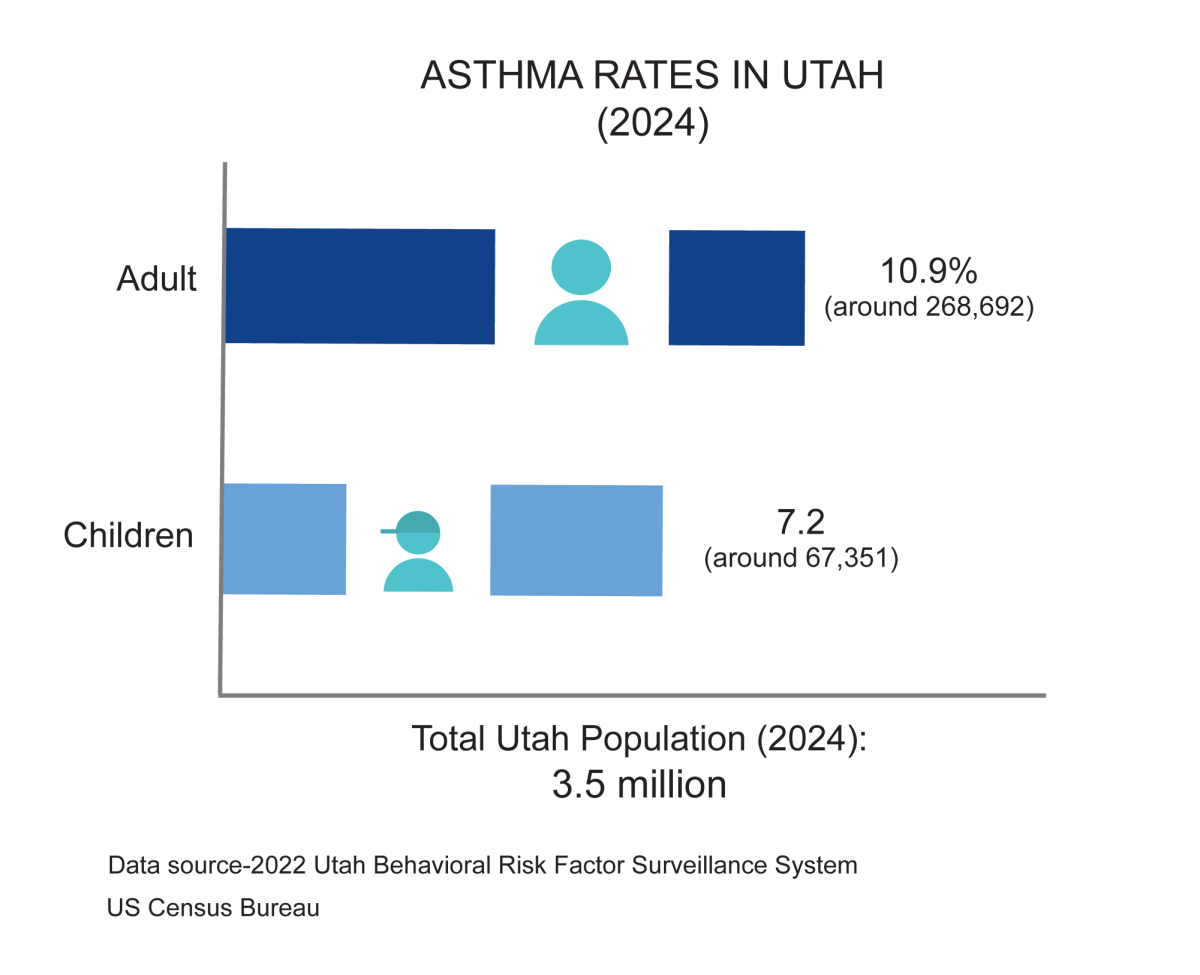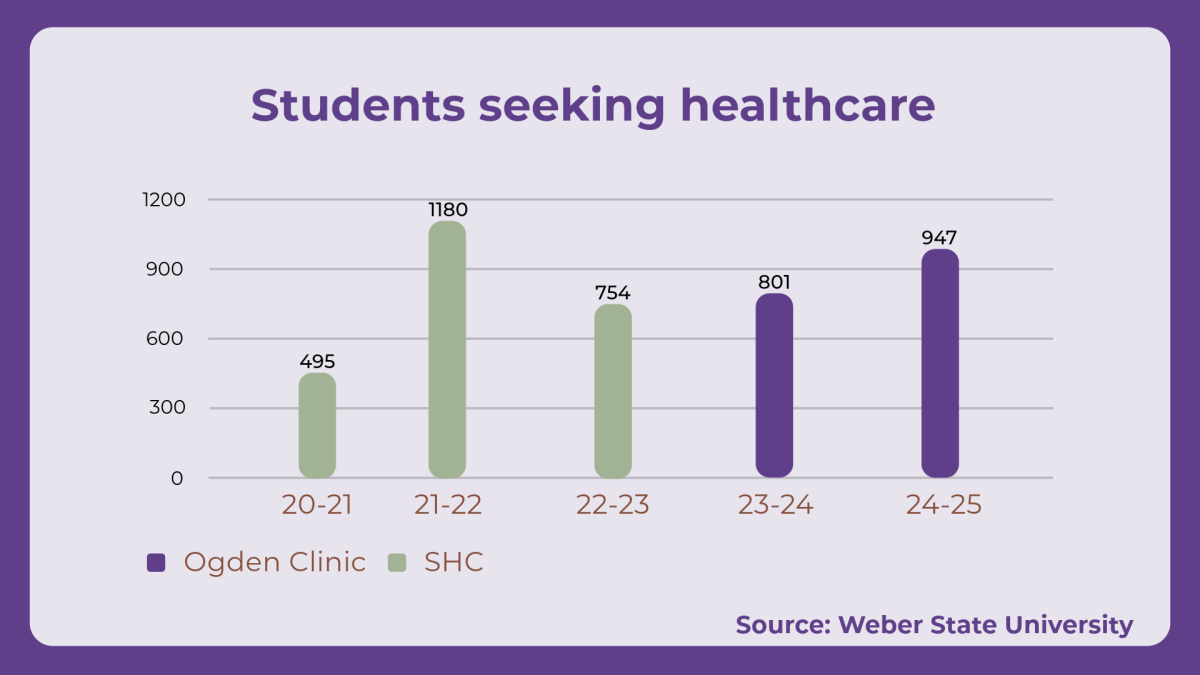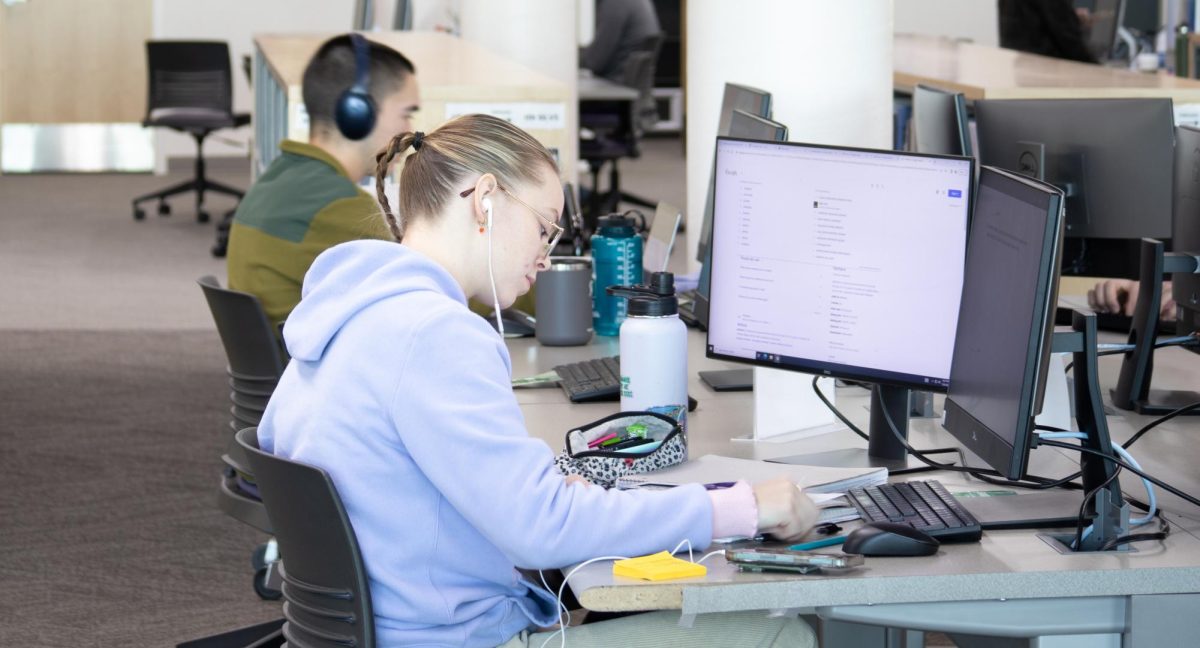
“Looks like my ADHD is kicking in again” has become a punchline when we get distracted or confused. But for people that deal with Attention-Deficit/ Hyperactivity Disorder, it’s no joke and can create some serious obstacles for people with the condition that prevent them from getting the most out of higher education.
According to a study conducted by the American Journal of Psychiatry that was funded by the National Resource Center on ADHD, 4.4% of adult Americans are affected by ADHD. It is estimated that the same percentage of college students are affected. The college atmosphere, with intense workloads and more relaxed student living structures, can exacerbate the problem.
The condition can cause sufferers to experience difficulty in remaining focused, tendencies to procrastinate or become easily distracted and may result in missed assignments, poor test scores and lower grades. ADHD can also lead to students failing classes and graduating later.
Weber State University provides the Counseling & Psychological Services Center, which is dedicated to helping students with issues like depression, anxiety and ADHD. Students with ADHD have a special resource; the ADHD Group.
Founded by Aubrey Morrison-Gill, a counsellor at WSU’s Counseling and Psychological Services Center, the ADHD group is a series of meetings for students diagnosed with ADHD where they can get together, share difficulties and learn about the condition and potential coping strategies.
As with many mental disorders, ADHD covers a range of possible symptoms. If a client presents with several, but not necessarily all, of these symptoms, they are candidates for treatment.
Morrison founded the group in spring of 2014 after noticing that, although depression and anxiety were perhaps more common among WSU students, many ADHD patients exhibited with the same symptoms. Dr. Morrison decided meeting as a group would increase the efficiency of treatment and would have the added benefits of structure and peer support.
“Rather than just hearing it from a professional, they are going to hear from peers who have a similar struggle,” Morrison said.
Treatments often vary from client to client, but generally speaking, Morrison said a combination of medication and behavioral therapy works best.
“Medication…is a game changer for a lot of people,” Morrison said. “It makes a big difference for a lot of people. But there are still going to be leftover symptoms that are not affected.”
Behavioral strategies can include simple ideas like using planners, setting up reminders on phones and making lists to follow. To help with distraction, playing music or creating “white noise” can help though for some any noise can be a distraction.
The results appear to be positive. Morrison conducts entry and exit surveys, and patients using the group meetings self-report improvement to varying degrees.
“The degree to which it was helpful varies, but I don’t think I’ve had anyone say that it wasn’t helpful yet,” Morrison said.
Because privacy and confidentiality is crucial to any mental health service, meetings are closed to reporters. But an attendee outside the meeting confirmed the positive effects.
One of the main challenges facing the group is simply knowledge of its existence. Many students at WSU are aware that there are mental health services available but are not clear on specific programs such as the ADHD group.
Tom Scoleri, a WSU student, has lately been wondering if ADHD might be affecting him. But he was unsure about what services WSU might have to help him find out.
“I thought there was, but I didn’t know for sure,” Scoleri said. “If there was, I didn’t know how to contact them.”
He was also not aware that there was a group specifically for ADHD. Now that he’s aware of the group, Scoleri said he may attend ADHD group meetings in the future.
“Now that I know there’s a group, I might go and see if some of my behaviors match what would be considered ADHD,” Scoleri said.







